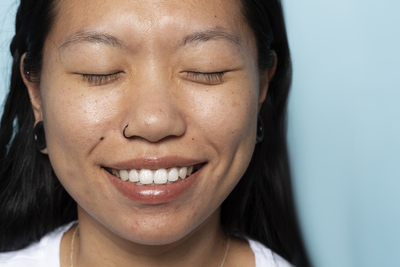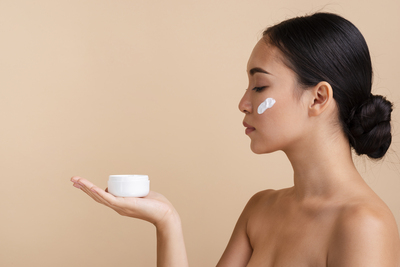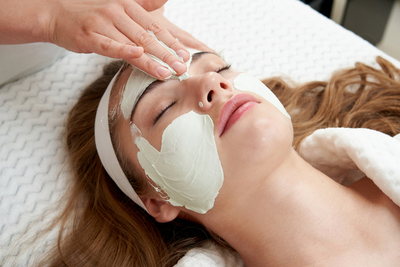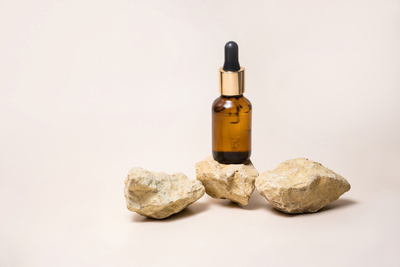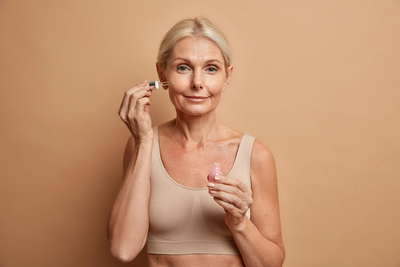Physical vs Chemical Sunscreen Which Is Better

Sunscreen has always been an essential part of a daily skin care routine. It helps protect the epidermis from overexposure to ultraviolet rays, saving us from wrinkles, the first signs of aging and skin cancer. The formulas of modern sunscreens include physical and/or chemical filters to provide a high level of protection against UV rays. Below, we study their differences and features to help you choose what suits you best.
So, which sunscreen: physical VS. chemical?
Physical Filters
Physical sunscreen filters include titanium dioxide and zinc oxide. They have the ability to refract ultraviolet light from the surface of the skin and protect it from sunburn. When applied, they aren’t absorbed into the skin, but only create some kind of a protective “screen” on the surface of the epidermis. Like a mirror, it repels UVB rays.
Pros Of Physical Filters
Zinc and titanium have similar properties: they reflect the sun's rays and literally deprive them of their ability to damage skin cells. Mineral sunscreen has filters that are hypoallergenic and considered the safest. Therefore, they are recommended by dermatologists to protect sensitive, irritated skin. Also, sunscreen with physical blockers doesn't interact with the skin which is important for acne or rosacea.
Also, thanks to zinc, the sunscreen acquires anti-inflammatory properties.
- They block UVA and UVB rays;
- They are suitable for sensitive skin as they have the least potential for irritation;
- They work immediately after application.
Cons Of Physical Filters
Perhaps the main disadvantage of a physical sunscreen with zinc oxide is that it has a dense texture and leaves white streaks on the skin after application. They are easily washed off with water. Also, you should renew the layer of sunscreen every couple of hours.
- They may appear as white spots or stripes, which are especially noticeable on dark skin;
- They wear out quickly in the heat and need regular updating.
Chemical Filters
The main principle of chemical filters is based on their ability to absorb ultraviolet radiation and convert it into thermal energy. Therefore, sunscreens based on them must be applied 20 minutes before going out into the sun, so that they have time to be absorbed.
Pros Of Chemical Filters
The advantage of chemical UV filters is that they are more stable. They are less easily washed off with water or clothes. Another advantage of a sunscreen chemical formula is its ability to protect the skin from both UVB and UVA radiation.
A new generation of chemical filters has higher photostability compared to their predecessors. Plus, they are less irritating to the skin and are less likely to cause redness and itching. They can be renewed less frequently and such a product will be effective the whole day.
- Sunscreens with chemical filters are more comfortable and easier to distribute on the skin. They have a light texture of gel-like formulas that don’t leave white spots on the skin;
- Last longer compared to physical ones;
- Not visible on the skin, don’t whiten it.
Cons Of Chemical Filters
Chemical filters are activated directly when interacting with UV radiation, destroying its energy, while being destroyed themselves.
- Some chemical filters take time to activate. For the product to function properly, it should be applied 30 minutes before going outside. Read the instructions - it will be indicated there.
Which Filter Is Better?
Most professionals believe that only a combination of filters provides the best protection. And if there is no individual reaction to chemical filters, it is better not to give up on them. Especially when the skin is light and you need an SPF above 30.
In addition, sunscreens with two types of filters have a prolonged effect. Thanks to physical filters, you can go outside immediately after application. While the chemical filters are activated, the physical filters will already begin to function.
What Else To Consider?
A new generation of sunscreens for face feel and look like regular moisturizing lotions and have several additional functions. They can have a transparent, radiant, or matte effect, adapt to skin tone and contain hyaluronic acid, oils and extracts of beneficial plants for high-quality hydration.
Try SkinBuddy to find out what works for your skin, and what doesn’t.
Scan your skincare, avoid pore-clogging or irritating ingredients, and discover smarter product matches. Open the web app or download the mobile app to get started.
or
Check Products OnlineCheck if your skincare suits your skin type, sensitivity, or acne-prone needs at skinbuddy.app and discover better options that match your routine and goals. SkinBuddy makes it easy, fast, and science-backed.
Scan to get started:

Web App (mobile only)

App Store & Google Play
In Conclusion
If you have sensitive skin, dermatologists recommend choosing the best sunscreen for face whose formulas have undergone strict clinical testing. Products without fragrances, dyes, or parabens will suit you best. And here’s a test you can perform yourself: apply a small amount to the inner forearm and wait. If a reaction doesn’t occur within 1-2 days, then the product is great for your skin.
References
- Physical Vs. Chemical Sunscreen. SummitMD Dermatology https://summitmddermatology.com/dermatology/physical-vs-chemical-sunscreen
- More, B. Physical sunscreens: on the comeback trail. Indian Journal of Dermatology, Venereology and Leprology https://ijdvl.com/physical-sunscreens-on-the-comeback-trail
- Sunscreens FAQS. American Academy Of Dermatology Association https://www.aad.org/media/stats-sunscreen
- Physical Or Chemical Sunscreen, Which Is Better For Preventing Melasma? Dermatology of Victoria https://www.div.net.au/blog/2019/12/13/physical-or-chemical-sunscreen-which-is-better-for-preventing-melasma



